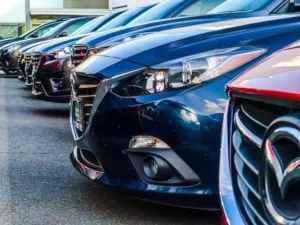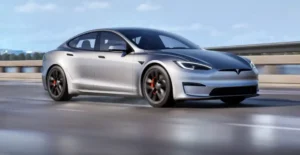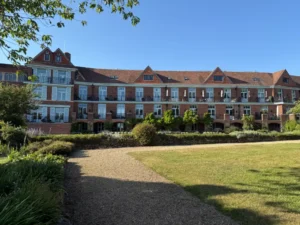Pioneering research and development investments of £120 million from the Industrial Strategy Challenge Fund (ISCF) to help the UK become a world leader in electric vehicle battery development and production were announced today by Business and Energy Secretary Greg Clark.
In a speech at the Battery and Energy Storage 2017 Conference today, Mr Clark set out the winners of this next phase of the £246 million government investment into battery technology through the Faraday Battery Challenge. These include:
- Investment of £80 million into the UK’s first automotive battery manufacturing development facility that will be located in the West Midlands, being created by Coventry and Warwickshire Local Enterprise Partnership with the Warwick Manufacturing Group (WMG) following a competition led by the Advanced Propulsion Centre, supported by Innovate UK. The new facility will allow the UK to develop the processes required to manufacture pioneering battery technology here in the UK at a high-volume production rate.
- Around £40 million of grant funding through the Innovate UK run Industrial Strategy Challenge Fund innovation competitions to help make UK businesses a world leader in battery technology. 27 projects were funded involving 66 organisations covering key technologies such as the development of battery materials and cell manufacturing, design and production of modules and packs including advances in thermal management and battery management systems, and recycling and recyclability of battery packs.
- Today’s news builds on the announcement last month by Mr Clark of The Faraday Institution, a new, multi-million pound research institute to drive and accelerate fundamental research in developing battery technologies, and its translation, funded from the ISCF through the Engineering and Physical Sciences Research Council (EPSRC).
The Faraday Battery Challenge will develop safe, cost-effective, durable, lighter weight, high performing and recyclable batteries in the UK which will power the next generation of electric vehicles.
Business and Energy Secretary, Greg Clark said: “Battery technology is one of the most game-changing forms of energy innovation and it is one of the cornerstones of our ambition, through the Industrial Strategy and the Faraday Challenge, to ensure that the UK leads the world, and reaps the economic benefits, in the global transition to a low-carbon economy.
“The new facility, based in Coventry and Warwickshire, will propel the UK forward in this thriving area, bringing experts from academia and industry together to deliver innovation and R&D that will further enhance the West Midlands’ international reputation as a cluster of automotive excellence.”
Ian Constance, Chief Executive, Advanced Propulsion Centre, said: “The new National Battery Manufacturing Development facility will be a national asset and the first of its kind open to all UK-located organisations. It will enable them to develop manufacturing processes for their concept-ready battery technologies at production rates appropriate to ‘giga’ factories. The objective is that these processes can transfer to UK high-volume manufacturing facilities.”
Ruth McKernan, Innovate UK Chief Executive, said: “The Faraday Battery Challenge is breaking new ground because it offers for the first time a co-ordinated programme of competitions across research, innovation and scale-up. It will therefore draw the very best of the UK’s world-leading research into commercial technologies and put UK businesses at the forefront of electric vehicle battery development.”
The next round of the Industrial Strategy Challenge Fund Faraday Battery competition will open on January 22nd 2018 and close on 28th March.
Projects funded through the Innovate UK competition include:
- The CALIBRE project led by Johnson Matthey which aims to create a safe, economically sustainable battery recycling supply chain in the UK allowing industrial batteries from vehicles to be recycled into base components and materials, which are subsequently reused. Ultimately, the project seeks to demonstrate a scalable process that will lead to the UK being the primary battery recycling hub in Europe.
- Niche Vehicle Battery Cell Supply Chain project – led by AGM Batteries. This aims to bring battery cell manufacture back to the UK.
- AMPLiFII 2 project led by Delta Motorsport to develop battery modules and packs for vehicles ranging from supercars to buses to diggers
- BATMAN project led by Perkins Engines Company to develop a new battery storage system for heavy-duty vehicles



